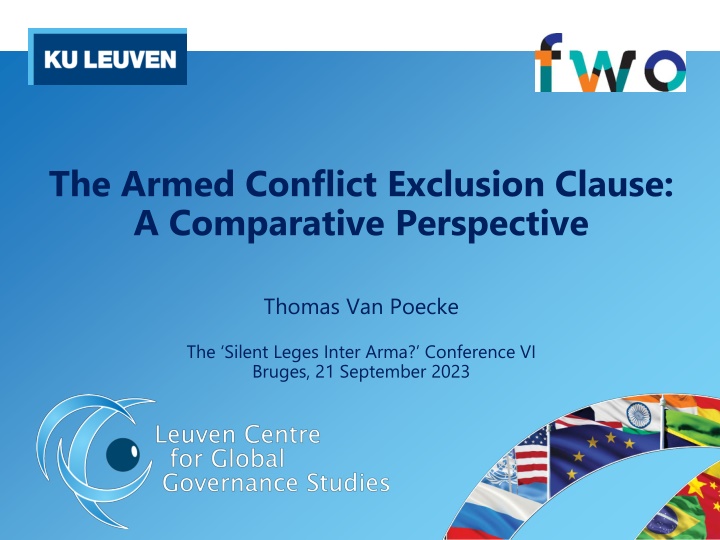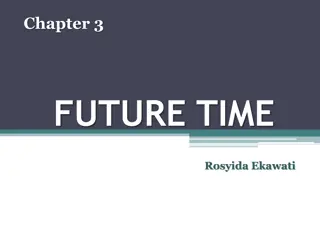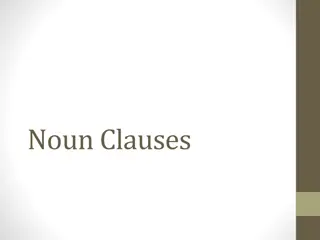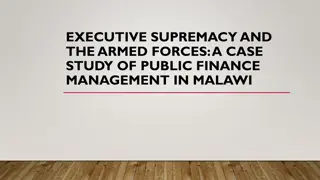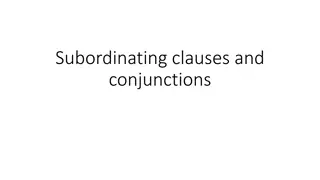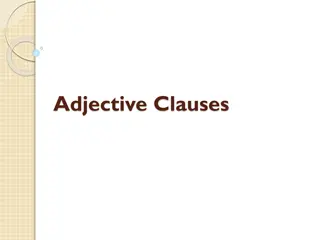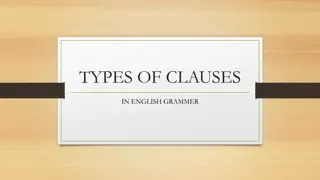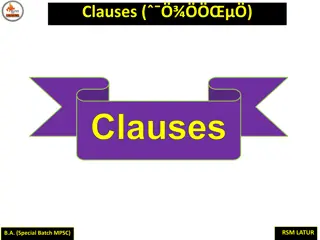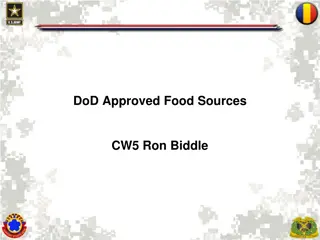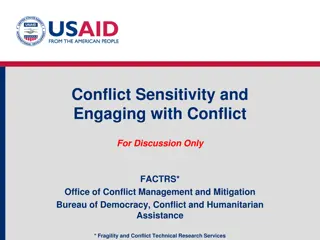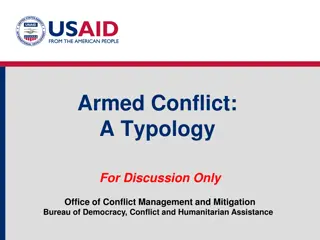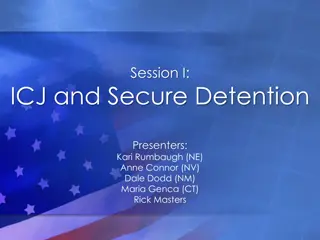Armed Conflict Exclusion Clauses: A Comparative Perspective
This comparative study examines armed conflict exclusion clauses in international, regional, and national criminal law instruments, focusing on provisions and exemptions related to armed actors and humanitarian concerns.
Download Presentation

Please find below an Image/Link to download the presentation.
The content on the website is provided AS IS for your information and personal use only. It may not be sold, licensed, or shared on other websites without obtaining consent from the author.If you encounter any issues during the download, it is possible that the publisher has removed the file from their server.
You are allowed to download the files provided on this website for personal or commercial use, subject to the condition that they are used lawfully. All files are the property of their respective owners.
The content on the website is provided AS IS for your information and personal use only. It may not be sold, licensed, or shared on other websites without obtaining consent from the author.
E N D
Presentation Transcript
The Armed Conflict Exclusion Clause: A Comparative Perspective Thomas Van Poecke The Silent Leges Inter Arma? Conference VI Bruges, 21 September 2023
Armed conflict exclusion clauses Provisions in international, regional or national criminal law instruments on terrorism That exclude certain activities from the scope of these instruments saving or non-prejudice clauses That focus on activities of armed actors humanitarian exemptions
The international & regional level Armed conflict exclusion clauses does not apply to activities of armed forces that are governed by IHL does not apply to activities that are in accordance with IHL does not apply to liberation struggles or struggles against occupation does not apply to acts covered by IHL, committed by government forces or members of organized armed groups 1997 Terrorist Bombing Convention 1999 Terrorist Financing Convention International conventions + 5 other international conventions (& draft CCIT) 2002/2017 EU Framework Decision/Directive on combating terrorism 1998 Arab Convention 1999 OIC Convention 1999 (O)AU Convention Regional instruments + 2005 Council of Europe Convention on the Prevention of Terrorism 2011 AU Model Anti- Terrorism Law 2014 Malabo Protocol 2011 AU Model Anti- Terrorism Law 2014 Malabo Protocol
The national level: a typology Large majority of states: no armed conflict exclusion clause (not mandatory) Armed Conflict Exclusion clauses does not apply to activities of armed forces that are governed by IHL does not apply to activities that are in accordance with IHL does not apply to acts committed during liberation struggles, including armed struggle, in accordance with IHL Offence- specific Ireland United States Switzerland [Gambia] [Mali] General (definition) Belgium Canada New-Zealand [South Africa] (until 2022)
The national level: a typology Large majority of states: no armed conflict exclusion clause (not mandatory) Armed Conflict Exclusion clauses does not apply to activities of armed forces that are governed by IHL does not apply to activities that are in accordance with IHL does not apply to acts committed during liberation struggles, including armed struggle, in accordance with IHL Offence- specific Ireland United States Switzerland [Gambia] [Mali] ? General (definition) Belgium Canada New-Zealand [South Africa] (until 2022) ?
Concluding thoughts Armed conflict exclusion clauses are prevalent at the international level, less so at the regional level, and even less so at the national level Trend not to adopt new exclusion clauses, and to restrict the scope of existing clauses or to delete them ~ criminal law instruments on terrorism increasingly expand from realm of peace to that of armed conflict Need to preserve integrity & enforcement of IHL
Thank you for your attention. Questions? thomas.vanpoecke@kuleuven.be
